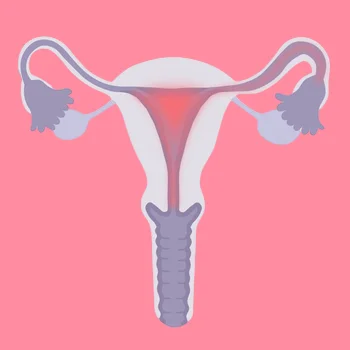Pelvic inflammatory disease (PID) in women is a common condition affecting the female reproductive system. It occurs as a result of a bacterial infection that may spread from the vagina or cervix to the uterus, fallopian tubes, and ovaries. If not treated early, it can lead to serious complications such as infertility or ectopic pregnancy.
What is PID in Women?
PID is an infection of a woman's upper reproductive organs, such as the uterus, fallopian tubes, and ovaries. It is often caused by a sexually transmitted infection (STI) or untreated vaginal infections.
Causes of PID
Several factors may increase a woman's risk of PID, including:
- Sexually transmitted infections such as chlamydia and gonorrhea.
- Untreated vaginal or cervical infections.
- Incorrect use of an IUD or immediately after insertion.
- Abortion or childbirth without adequate sterilization.
- Repeated unprotected sexual intercourse.
Symptoms of PID in Women

The severity of symptoms varies from case to case, and the most common are:
- Lower abdominal or pelvic pain.
- Abnormal vaginal discharge.
- Bleeding between periods or after intercourse.
- Fever.
- Pain during intercourse or urination.
How to Diagnose Pelvic Inflammatory Disease
Diagnosis is based on medical history and medical tests, including:
- Physical pelvic examination.
- Cervical smears to detect bacterial infections.
- Blood and urine tests.
- Ultrasound to detect changes in the reproductive organs.
Methods for Treating Pelvic Inflammatory Disease
Treatment varies depending on the severity of the condition and the stage of diagnosis, and includes:
- Oral or intravenous antibiotics.
- Rest and avoidance of sexual intercourse during treatment.
- In severe cases, hospitalization may be required.
- Surgical intervention to remove the abscess or affected tissue, if necessary.
Medications for Treating Pelvic Inflammatory Disease in Women

Specific medications are used to treat the underlying infection, such as:
- Broad-spectrum antibiotics (e.g., doxycycline, metronidazole, ceftriaxone).
- Pain relievers and fever reducers.
- Immuno-supportive medications, depending on the condition.
Ways to Prevent Pelvic Inflammatory Disease
The risk of developing pelvic inflammatory disease can be reduced by:
- Avoiding unprotected sexual intercourse.
- Early treatment of vaginal and cervical infections.
- Using contraceptives under a doctor's supervision.
- Regular medical follow-up after childbirth or miscarriage.
Does pelvic inflammatory disease cause infertility?
Yes, if not treated early, it can lead to blocked fallopian tubes and increase the risk of infertility.
How long does pelvic inflammatory disease last?
Antibiotic treatment often takes 10 to 14 days, depending on the severity of the condition.
Can pelvic inflammatory disease recur?
Yes, it can recur if the underlying cause is not treated or if the infection recurs.
Summary of symptoms and treatment of pelvic inflammatory disease in women
Pelvic inflammatory disease in women is a serious infection of the upper reproductive organs, often caused by untreated infections or sexually transmitted infections.
Symptoms include abdominal pain, abnormal discharge, and fever. Treatment is with antibiotics or surgery in severe cases, and prevention depends on treating infections early and practicing safe health habits.